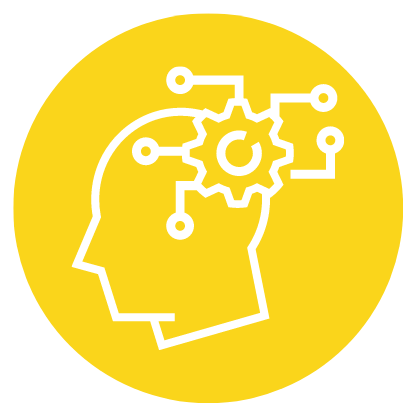Why Incompetent People Think They’re Amazing – David Dunning | TED-Ed
We Make Your Education Count

Get the Credit You Deserve and Become the Most Attractive Job Candidate by Earning and Posting A+ Badges to Your Linkedin Profile.
Sign Up to Get Started at Accredicity
|
Discover why even the least capable people may think they're better than they are with the Dunning-Kruger effect. David Dunning explains why incompetent people think they're amazing in this TED-Ed video. Through psychological research, Dunning and Kruger's 'Dunning-Kruger effect' has shown that people frequently overestimate their abilities and judge themselves better than average in a range of fields, from managing money to reading emotions. This illusory superiority is particularly rife among those with the least ability, who lack the expertise to recognize their own weaknesses. However, the Dunning-Kruger effect can be combatted: asking for feedback, considering it, and learning more can help us to understand our true abilities. Learning Outline1. People tend to overestimate their own abilities and rate themselves better than most in disciplines ranging from health, leadership skills, ethics, and beyond. Instructional ContentIncompetent people tend to overestimate their own abilities, a phenomenon referred to as the Dunning-Kruger effect. Rather than being an issue of ego, the Dunning-Kruger effect is a result of gaps in knowledge and skill that make it difficult for people to recognize their own errors. This effect affects people across a variety of disciplines, from health, to leadership skills, to grammar, and beyond. In fact, those with the least ability are often the most likely to overestimate their skills. The Dunning-Kruger effect can be difficult to recognize because it affects people differently depending on their level of knowledge and skill. People who are unskilled may not be able to recognize their own faults, while those who are highly skilled may not realize how unusual their abilities are. In order to gain a better understanding of our own abilities and avoid the Dunning-Kruger effect, it is important to seek feedback from others, and to continue to learn and grow. The more knowledgeable we become, the more likely we are to be aware of our competence, and to make accurate assessments of our skills. By watching David Dunning’s video, “Why Incompetent People Think They’re Amazing”, viewers can gain a better understanding of the Dunning-Kruger effect, and how it affects people in different ways. Through the video, viewers can explore the various studies that have been conducted on the effect, and how it can be managed in order to gain a more accurate assessment of our own abilities. Cognition
|

Incompetent people often think they're amazing, even when they're not. It's like they're wearing blinders that prevent them from recognizing how badly they're doing, while experts often overestimate how knowledgeable everyone else is. It's like the old proverb of arguing with a fool: make sure you're not the fool! To find out how good you really are, ask for feedback from other people and keep learning. Video Quotes"People measurably poor at logical reasoning, grammar, financial knowledge, math, emotional intelligence, running medical lab tests, and chess all tend to rate their expertise almost as favorably as actual experts do." - David Dunning "When software engineers at two companies were asked to rate their performance, 32% of the engineers at one company and 42% at the other put themselves in the top 5%." - David Dunning "Ask for feedback from other people, and consider it, even if it's hard to hear. Second, and more important, keep learning. The more knowledgeable we become, the less likely we are to have invisible holes in our competence." - David Dunning Related Quotes1. "We are all prone to overestimate our own competence, and we do it in a very systematic way." - David Dunning 2. "We tend to make judgments about our own abilities that are really quite out of touch with reality." - David Dunning 3. "Incompetence renders people unable to recognize their own incompetence." - David Dunning Competencies1. Emotional Intelligence Learning Outcomes1. Analyze: Students will be able to identify and articulate the psychological research phenomenon of the Dunning-Kruger effect and its implications. 2. Evaluate: Students will be able to assess the accuracy of their own ability evaluations based on the Dunning-Kruger effect. 3. Create: Students will be able to develop strategies for obtaining an accurate assessment of their own abilities. 4. Applying: Students will be able to put into practice strategies for obtaining an accurate assessment of their own abilities. 5. Understand: Students will be able to comprehend the double curse of knowledge gaps preventing them from recognizing their errors. 6. Remember: Students will be able to recall the various disciplines in which people tend to overestimate their abilities. Sample Answers1. I have learned that the Dunning-Kruger effect is a phenomenon in which people tend to overestimate their own abilities and judge themselves as better than others, to the degree that it violates the laws of math. David DunningDavid Dunning is a Professor of Psychology at the University of Michigan. He is an expert on Why incompetent people think they're amazing due to his research on cognitive biases and his book, “The Dunning-Kruger Effect: On Being Ignorant of One's Own Ignorance.” He is also a research affiliate of the Max Planck Institute for Human Development, Berlin. Max Planck Institute Learning DesignThe three competencies of Emotional Intelligence, Critical Thinking, and Self-Awareness are essential for developing the cognitive skills necessary to be successful in the modern world. Emotional intelligence refers to the ability to understand and navigate one’s own emotions and those of others. Critical thinking involves the ability to evaluate information, identify patterns, and make decisions based on evidence. Self-awareness includes the ability to understand one’s own emotions, motivations, and values. These competencies are important to learn because they enable individuals to better understand themselves and the world around them. They help individuals develop the skills necessary to approach problems, think creatively, and make decisions that are based on evidence rather than emotion. Additionally, these competencies support the development of strong interpersonal skills, which are key for successful communication and collaboration. In order to build these competencies, students can use a variety of frameworks and pedagogical approaches. For example, they can read and discuss literature related to each competency. They can also participate in activities that help them practice and apply the concepts of emotional intelligence, critical thinking, and self-awareness in real-world scenarios. In addition, role-play activities, simulations, and journaling can be used to help students develop and refine these competencies. Finally, reflective discussions and group projects can be used to help students gain insight into the ways in which these competencies can be used to solve real-world problems. AssessmentQ: What is the name of the phenomena described in the video? Questions1. What is the Dunning-Kruger effect and why is it important to understand? KeywordsDunning-Kruger Effect, Incompetent Thinking, Self-Esteem Boost, Illusory Superiority, Emotional Intelligence, Logic Quiz, Debate Tournament, Mini Course Logics, Inaccurate Self-Perception, Feedback From Others Facts1. The Dunning-Kruger effect explains why people tend to overestimate their abilities even when they're not very good at something. Trends1. Create a forum for people to share their experiences of the Dunning-Kruger effect and how they overcame it. SourceThis learning instructional guidance was formulated using the GPT-3 language model created by OpenAI. ShareConfidence isn't always accurate. The Dunning-Kruger effect explains why we often overestimate our skills. Learn more & stay humble! #SkillGaps #Confidence #Knowledge #Learning #Humility ❤️ @Accredicity |








 118 Creds - Cognition
118 Creds - Cognition



